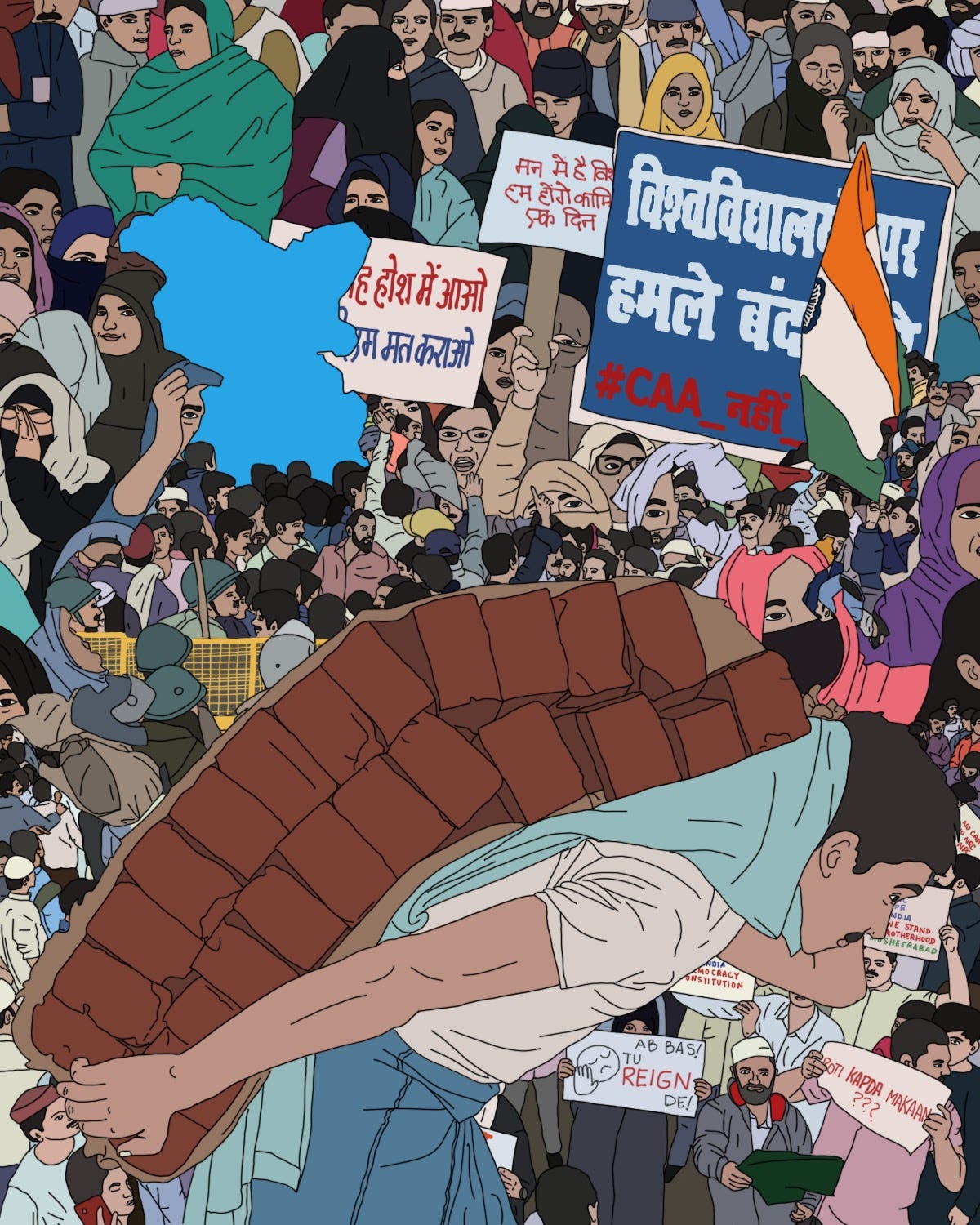I, State and Memory
I used to wonder how India’s collective memory is so short-lived. A country that remembers mythical events that never really occurred—wars fought by gods, kings born of miracles—seems quick to forget its recent past. Myths thousands of years old live vividly in places of worship and festivals, while pogroms, famines, and lynchings from a few years/months ago dissolve into silence.
But perhaps this amnesia is not India’s alone. It is global. Especially states shaped by the West, practice forgetting as governance. The world remembers Europe’s wars, but forgets the centuries of colonial plunder that made Europe rich. America remembers its moon landing, but forgets the bodies that bled in its cotton fields. Memory, in the hands of the state, is curated: chosen for pride, trimmed for obedience and erased for convenience.
Yet memory is the backbone of a society. Without memory there is no self, no community, no continuity. Memory is why we progress but also why we resist. To remember is not only to know “what not to do” but to recover “how to do otherwise.” It is a manual for survival, a compass for justice.
And still, our present memories too are fading, almost as soon as they are formed. A manual scavenger dies in the gutter today, and we remember it for perhaps two hours—long enough for the outrage to trend, too short for the shame to transform into change. A farmer takes his life, a child dies of malnutrition, a woman is assaulted—the news cycle devours the event and spits it out as if it never happened. This constant forgetting is not accidental; it is cultivated. Forgetting is the anesthetic of the present.
But memory is not neutral. It has caste and class. We remember the tragedies of the rich with solemnity, but the deaths of the poor fade without witness. Today we speak of the condition of Muslims in India because the rich Muslims, the public figures, the celebrities, are also under threat. But the lives of poor Muslims, especially Dalit and Pasmanda Muslims, have been degrading every day. Who remembered them then? Who remembers them now?
We weep for the minority superstar when he faces harassment, yet remain silent about the Muslim carpenter, the Dalit rickshaw puller, the sanitation worker—all ground down by everyday violence. Our compassion is selective, stratified. Even within minorities, memory is distributed according to class and caste. What is remembered is not necessarily the most brutal suffering but the most visible. What fades is often what sustains the system of oppression.
The state understands this arithmetic well. It curates memory not only through textbooks and museums but also through silence. It floods us with images of certain events while burying others. It decides which lynching should ignite debate and which should vanish in police files. And we, conditioned by spectacle, become accomplices. We mistake trending outrage for remembrance, but this is not memory—it is consumption.
Yet memory, even when fragile, is more enduring than the state. States collapse; borders shift; governments change. Memory lingers in folk songs, in whispered stories, in rituals carried quietly in households, in the diaries of those who refused to be silent. Dalit communities remembered Babasaheb Ambedkar as liberator long before the state reluctantly placed his portrait in Parliament. Enslaved people of African descent remembered rhythm and ritual across oceans, birthing new forms of resistance. Memory bends, shifts, fragments—but it survives.
Philosophically, memory is both a burden and a gift. It can bind us to poisonous myths of purity and hierarchy, or it can free us by recalling equality and dignity. To remember wisely is a responsibility. To forget deliberately is complicity.
To remember is to resist erasure. To remember is to refuse the hierarchy of empathy. To remember is to make the invisible visible, the silenced audible, the forgotten unforgettable.
But this task cannot be left to the state. The state is too powerful, too invested in manufacturing memories for its own survival. It will continue to trade in memory, to sell us myths in exchange for obedience, to feed us anniversaries while burying the everyday dead. We cannot buy our history from those who profit by erasing it.
I, and we—the people—must create our own memories. We must carry them in poems, in songs, in stories told across dinner tables, in murals on city walls, in archives hidden and open. We must build our own continuity, our own inheritance. To be human is not to borrow memory imposed upon us, but to make memory anew, deliberately, courageously, without compromise.
For when we remember on our own terms, without trading with the state, memory ceases to be a tool of power. It becomes a tool of freedom.


Such a gentle and strong reminder to remember and retell our stories and stories of other dear humans. Thank you for this :)